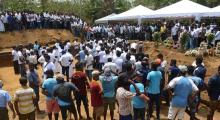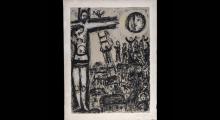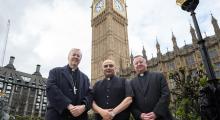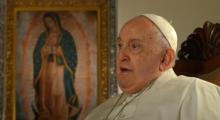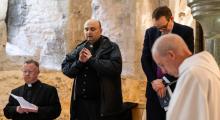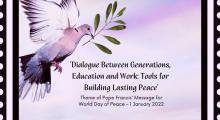Issued by the Catholic Center for Studies and Media - Jordan. Editor-in-chief Fr. Rif'at Bader - موقع أبونا abouna.org
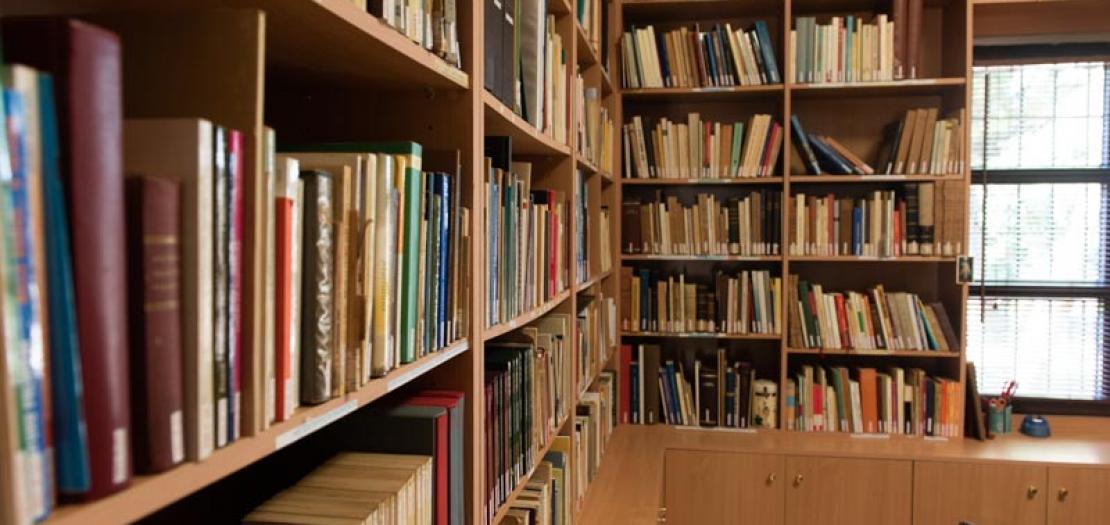
The Franciscan Monastery of the Island of Rhodes preserves the memory of the Franciscan work of the past as well as the history of the island’s Italian presence. This is a very important role for the conservation of historical memory both for the Island and for Greece, but also for Italy.
Among the main functions of an Archive is that of preserving texts, deeds, documents, photos and what constitutes the cultural heritage of a nation, city or country, so as to prevent it from deteriorating. This is the function of the Archive of St. Mary of Victory Maria in Rhodes, which houses the witnesses and documents related to the Franciscan and Catholic presence, as well as a great deal of information about the period of Italian presence on the island in the early 1900s. In 2006, an area of the monastery was dedicated to this purpose and a group of volunteers, coordinated by Dr. Lucia Conte Jannikis, a volunteer in charge of the Archive, began to arrange books and documents, [written] in Italian and Latin, which dated back to the 1700s and 1800s.
“This archive was the laundry room,” said Dr. Conte Jannikis. “At the beginning, with the help of some friends, I was able to organize [the place]. Then, slowly, the group shrank. Now there are only two of us left, Pina Guadagno Giannino and I. And since there is not much help, we do what we can. I continue to work thanks to my passion as an archivist and to my knowledge of Italian, French, English, Latin and Greek”. Currently, although many records have been lost, there are many requests for wedding, baptism, confirmation and death certificates that can help to attest to the presence of the applicants’ relatives on the island. There are also numerous requests by students and researchers who want to gain deeper knowledge of certain historical or structural concepts, through the plans of the Churches preserved in the archives.
Some of the documents, wills, certificates and other records, which are preserved but not organized, date back to the Italian period, which lasted from 1912 to 1947. This is the time when the Catholic presence on the island became a very important resource. During that time, the new generations grew up respecting religion, the sacred places and their teachers who belonged to the Order of the Brothers of the Christian Schools. The section of the archive is referred to as Res Italica was created precisely for this purpose: it preserves a fair amount of books, photos, brochures, newsletters, newspapers and written accounts from that period, also found thanks to the work of the former students of the Lasallian Association in Rhodes and to the Italian tourists who had relatives and friends who lived in the Dodecanese.
“After my husband’s death, helping out here has given my life a new meaning,” said Lucia. “This volunteer work allows me to combine a passion that I already had with the advantage of it having a purpose.” Dr. Conte Jannikis is not alone and Guadagno Giannino is also on the same page: this work also brings me back to life. My history and the history of my family are rooted on this island and the possibility of joining this family of volunteers is truly unique: it is a network of warmth and emotions from which we draw every day and that keeps teaching us something new even at our age.”
Another place [that needs to be] mentioned, which was also built with the commitment of the volunteers, is the library located in the parish of St. Francis. It contains spiritual books donated to the parish through a call for donations by the parish priest, Br. John-Luke Gregory. The request, made in different languages, was published by Vatican News. “We would never have imagined that the word would get out so far,” the parish priest said. “Shortly after publishing the request, we started receiving books in Greek, English, Italian, French, German and Spanish from all over the world. Thus, we began to organize the shelves so as to create a spiritual area.”


